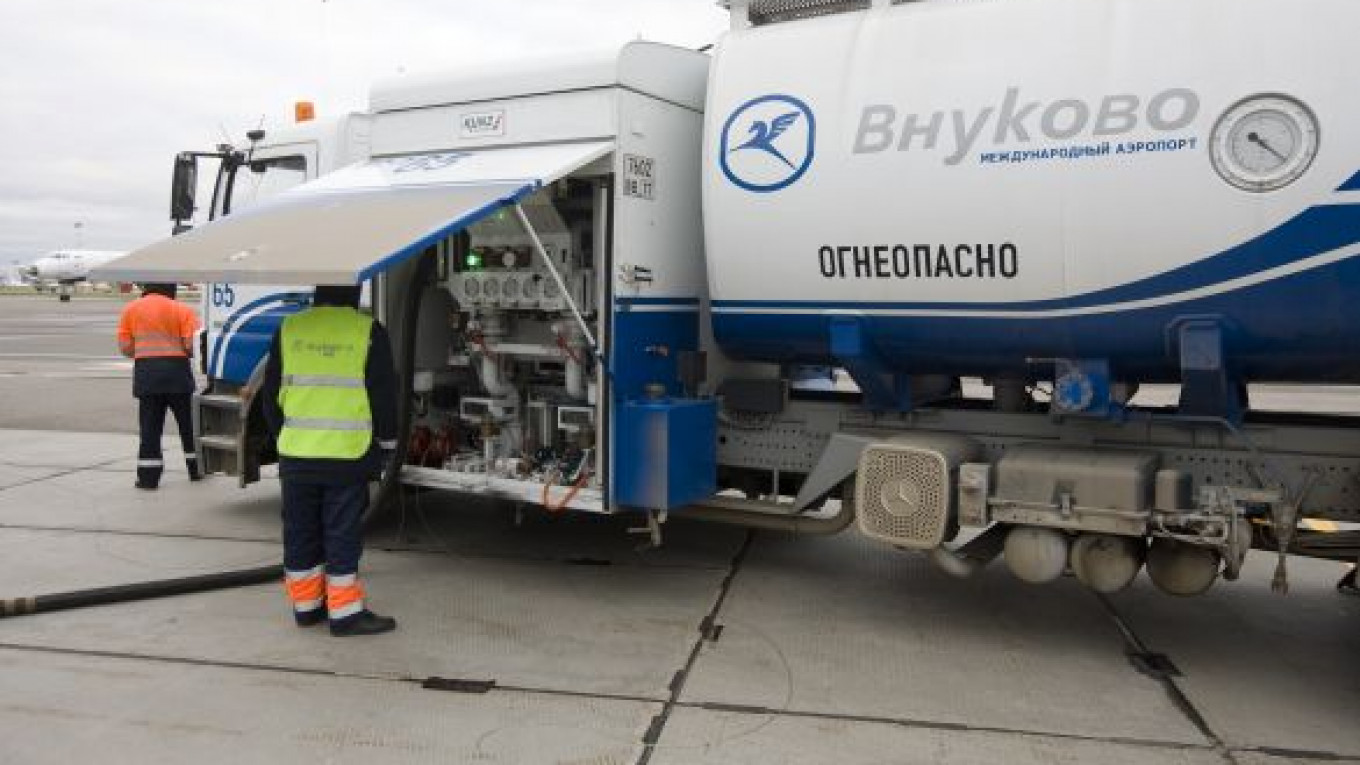Aeroflot could face millions of dollars in extra operating costs this year if Russian airlines cannot find a way around paying new carbon fees on European flights introduced on Jan. 1.
But there is no clear consensus on exactly how much the new fees will be.
Beginning this year, the European Union has included all airlines flying to destinations within its territory in a carbon-trading scheme — which means airlines flying to and from member countries will have to pay for greenhouse gas emissions produced by their aircraft.
Airlines that do not pay face fines and even being banned from flying in Europe.
Aeroflot, which controls "easily two-thirds" of the European market, will be the hardest hit of all Russian airlines, Alfa Bank transport analyst Vladimir Dorogov told The Moscow Times.
Aeroflot spokespeople did not return calls on Tuesday.
Airlines flying to Europe will now need carbon credits for any emissions above 2010 levels.
In 2012 companies will get 85 percent of those credits for free, obliging them to pay for just 15 percent of their overrun.
But analysts said a complex system and conflicting information makes it almost impossible to tell exactly how much the fees will come to.
"The truth about these carbon schemes is that we know very little about them. It is very difficult to come by concrete data on which to base calculations," Dorogov said.
The Transportation Ministry estimated last year that the cost to passengers would be a hike in ticket prices of between 5 euros and 40 euros ($6 to $51).
Kommersant estimated Russian airlines could collectively fork out up to 30 million euros ($38 million) under the scheme, citing "a source familiar with the documents."
That is lower than previous estimates by Aeroflot itself, which said late last year that the charges could cost it $40 million in 2012 alone.
The Russian government has publicly opposed the plan, demanding in December that introduction of the scheme be postponed at least 18 months and hinting at a retaliatory system of charges for aircraft crossing Russian airspace.
Legal options appeared to dry up in December, when the European Supreme Court threw out a challenge by a group of North American airlines and trade associations who argued that the plans violated international law and open skies between the United States and Europe.
Last week, China Air Transport Association, the trade group that represents China's biggest airlines, said its members would refuse to cooperate with the emissions-trading scheme.
But the general consensus is that resistance is futile, Dorogov said.
"No one is very happy, but the Europeans are looking pretty uncompromising. The sense is that everyone is going to have to pay," he said.
Meanwhile, some academics have argued that airlines could actually benefit from being included in the trading scheme.
A joint report by the Massachusetts Institute of Technology and Münster University said U.S. airlines alone could see a $2.6 billion windfall from the scheme, Bloomberg reported.
A Message from The Moscow Times:
Dear readers,
We are facing unprecedented challenges. Russia's Prosecutor General's Office has designated The Moscow Times as an "undesirable" organization, criminalizing our work and putting our staff at risk of prosecution. This follows our earlier unjust labeling as a "foreign agent."
These actions are direct attempts to silence independent journalism in Russia. The authorities claim our work "discredits the decisions of the Russian leadership." We see things differently: we strive to provide accurate, unbiased reporting on Russia.
We, the journalists of The Moscow Times, refuse to be silenced. But to continue our work, we need your help.
Your support, no matter how small, makes a world of difference. If you can, please support us monthly starting from just $2. It's quick to set up, and every contribution makes a significant impact.
By supporting The Moscow Times, you're defending open, independent journalism in the face of repression. Thank you for standing with us.
Remind me later.






